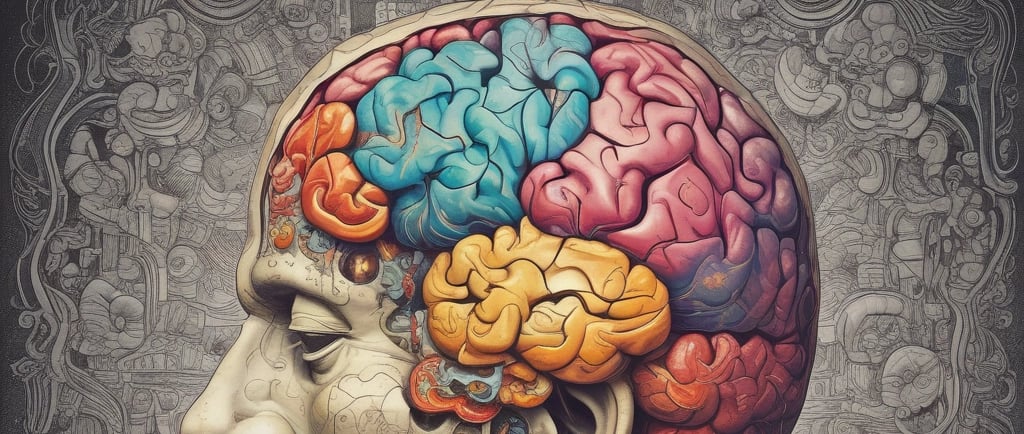The Psychology of Sales: Why Trust Closes What Logic Can’t
This blog explores the psychology behind successful B2B sales, revealing why logic alone doesn’t close deals—trust does. You’ll learn how emotional safety, thoughtful questions, and behavioral cues drive buying decisions, and why in the age of AI, your most powerful sales tool is still human connection.
Fendall Burian
8/8/20253 min read


The Psychology of Sales: Why Trust Closes What Logic Can’t
We love to think sales is about logic. ROI calculators. Feature matrices. Competitive battle cards. We build elaborate decks that explain why we’re the best choice—clear, rational, indisputable. But here’s the truth: People don’t buy from logic. They buy from emotion and justify it with logic later.
If you want to win in modern B2B sales, you need more than a playbook. You need to understand how the human brain buys.
That’s where sales psychology comes in.
The Brain Doesn’t Buy the Way You Think It Does
Most salespeople try to sell to the neocortex the rational part of the brain.
But decisions are made much earlier than that. They’re made in the limbic system, the part responsible for emotion, trust, fear, safety, and intuition. That means the moment you enter a sales conversation, your prospect’s brain is asking:
Do I feel safe with this person?
Do they understand me?
Can I trust them to solve something that matters?
Only once those questions are answered emotionally does the rational brain come in with:
“Let’s ask about pricing.”
If you skip that first part, if you go straight into features or frameworks, you’ve already lost the deal.
Trust Is a Neurochemical Event
Let’s go deeper.
When a buyer feels seen and understood, their brain releases oxytocin, the trust hormone. That oxytocin lowers defenses, reduces cortisol (the stress hormone), and shifts the brain into a state of collaboration.
So the most important slide in your deck, might be the moment you pause and say:
“Can I ask what success would feel like to you personally?”
That single question changes the whole dynamic. Because now it’s not about what you're selling—it’s about what they’re believing.
Questions > Pitches
Want to build trust fast?
Ask better questions. Because:
Questions signal care.
Questions build credibility.
Questions create psychological safety.
This is called earned empathy, and it’s one of the most powerful tools in modern sales. When a buyer feels like you “get it,” they open up. They tell you what really matters. And you earn the right to shape a solution that’s both logical and emotional.
Examples of psychologically smart questions:
“What’s the hidden pressure behind this project?”
“What would success mean for your team—not just the business?”
“What concerns you most about moving forward?”
Each of these creates space for trust to grow.
Pressure Kills Deals. Clarity Closes Them.
Here’s where most sellers go wrong: They confuse urgency with pressure. Pressure triggers the fight-or-flight response. It shuts down creative thinking. It makes buyers defensive. But clarity does the opposite. It builds safety. It turns skepticism into curiosity. It opens the door for deeper collaboration.
Great sellers don’t force the close. They create the conditions for a decision to happen.
Read What’s Not Being Said
Sales is a conversation. But it’s also a diagnosis. And the best sellers don’t just listen to what’s said—they watch:
The pause before someone says “Sounds good”
The tight smile after you mention budget
The shift in tone when a new stakeholder enters the call
These are emotional cues. They reveal where doubt lives. And they show you where trust still needs to be earned.
No CRM will capture that. But you can, if you’re paying attention.
The Psychology of You
Let’s flip the lens.
Just like buyers show emotion, so do you. And the way you show up—verbally, physically, emotionally—has just as much impact as your messaging.
Ask yourself:
Do I speak with calm authority or anxious urgency?
Do I pause to create space or rush to fill the silence?
Do I show up to connect or just to present?
Your presence is a trust signal. Every gesture, every tone, every moment of silence—it all adds up. And it either says: “You’re safe here” or “This is just another sales pitch.”
Where AI Meets Psychology
You might be thinking, what about AI? Great question. AI is a force multiplier. It helps you:
Score leads based on real behavior
Summarize call transcripts and detect patterns
Draft outreach with the right tone
But here’s the paradox: The more AI we use, the more human we need to become.
Because in a world where everyone has the same tools, the only differentiator left…
Is how you make people feel.
Final Thought: Psychology Is Not a Soft Skill. It’s the Competitive Edge.
The best salespeople don’t just know how to sell. They know how people decide. They understand that:
Buyers crave certainty—but buy emotionally.
Trust isn’t a buzzword—it’s a chemical reaction.
Clarity beats pressure. Every time.
So yes, build your playbooks. Automate your cadences. Use AI. But master the psychology behind the deal. Because that’s where the real leverage lives.
And remember: People don’t buy when they understand. They buy when they feel understood.